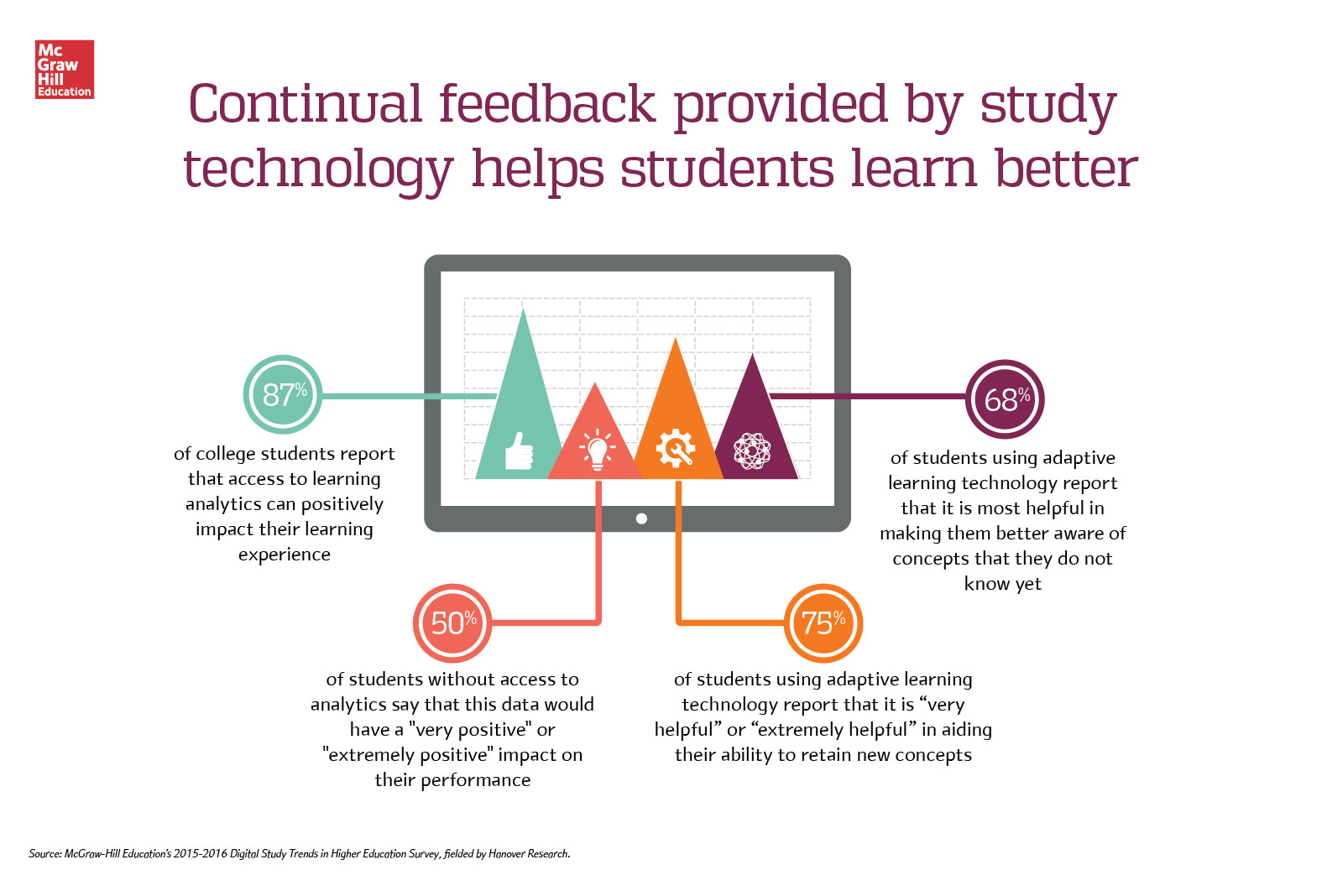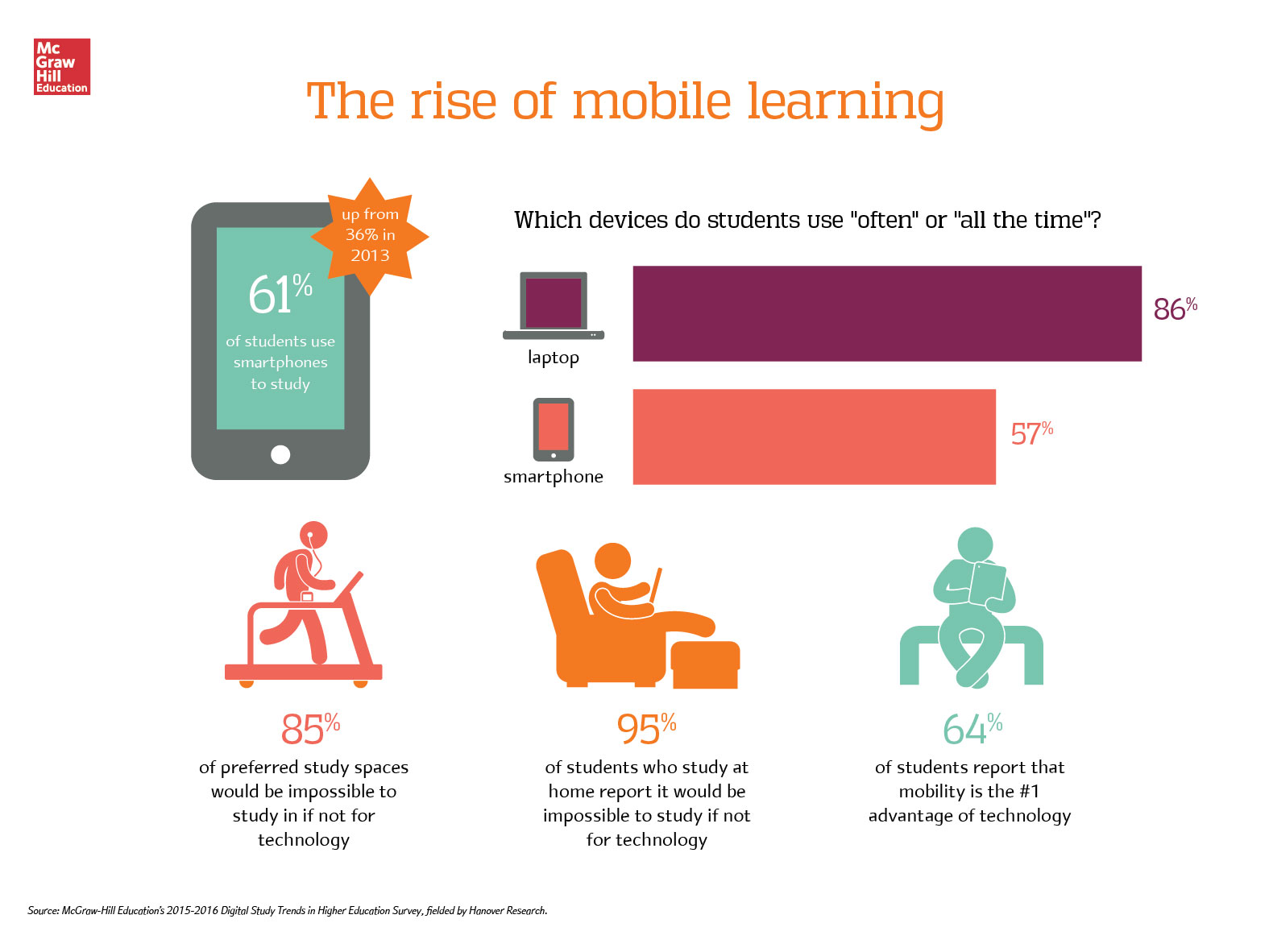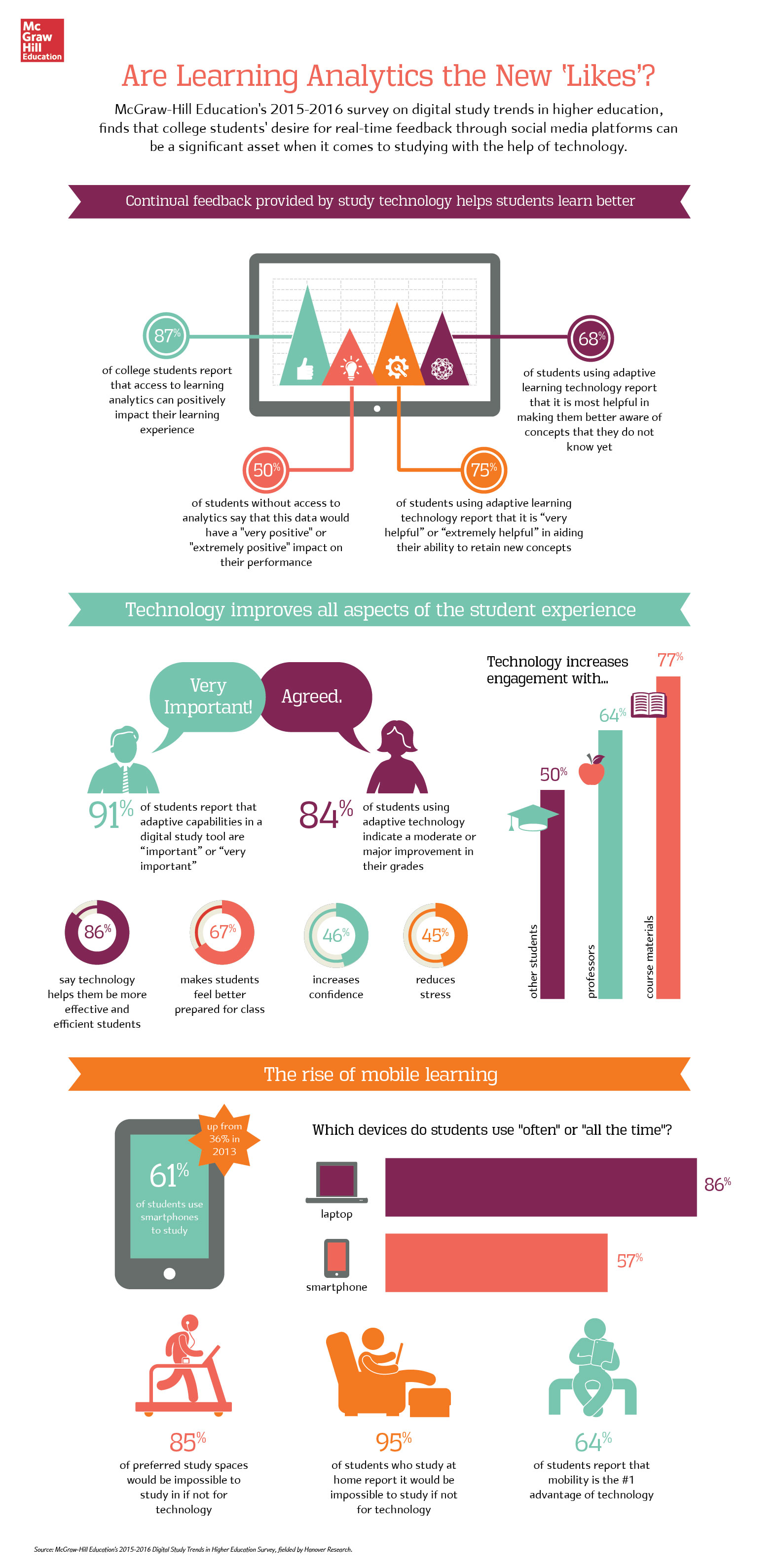My Account Details
Are Learning Analytics the New ‘Likes’? 87% of College Students Perform Better with Access to Personalized Data, New Research Finds
McGraw-Hill's third annual survey on digital study trends in higher education finds that students are making the connection between feedback from study technology and better academic performance
INDIANAPOLIS, IND. (EDUCAUSE) – October 28, 2015 – Today’s young adults are often criticized for turning to social media platforms like Facebook and Instagram for real-time feedback, but new research from McGraw-Hill suggests that this behavior could be a significant asset when it comes to studying with the help of technology. According to “The Impact of Technology on College Student Study Habits,” the third report in an annual series conducted by McGraw-Hill and fielded by Hanover Research, 87% of college students report that having access to data analytics regarding their academic performance can have a positive impact on their learning experience.
REPORT HIGHLIGHT: The survey of more than 2,600 U.S. college students shows that students are embracing technology for its ability to help them learn more effectively through continual feedback
- Almost two-thirds of students who already use such analytics report that their impact on their academic performance is “very positive” or “extremely positive.”
- 75% of students using adaptive learning technology report that it is “very helpful” or “extremely helpful” in aiding their ability to retain new concepts.
- 68% of students using adaptive learning technology report that it is most helpful in making them better aware of concepts that they do not know yet.
Peter Cohen, McGraw-Hill's group president of U.S. Education, commented:
- “Students today have an almost insatiable hunger for instant and continual feedback. By using technology to deliver learning experiences that leverage those motivations, we can capitalize on an enormous opportunity to improve learning outcomes.”
- “Adaptive learning technology provides just that kind of actionable, real-time feedback, and does so in a way that’s incredibly personalized. It’s gratifying to see these technologies align so perfectly with college students’ own motivations.”

Students are satisfied with the use of technology in college but see greater potential
- Eighty-four percent of students reported that technology helps their professors and teaching assistants to be more efficient and effective in teaching classes, and 86% agree that technology helps them to be more efficient and effective students.
- However, 86% of students feel that there are still ways that they could be using technology to make their education better, and 79% feel that there are still ways that their university and teaching staff could be using technology to make their education better.
- Sixty-seven percent of students found print textbooks with digital components to be “very helpful” or “extremely helpful” to their study process; 57% of students found print textbooks to be helpful on their own.
Mobile learning trends continue to accelerate, but laptops are still students’ preferred device
- Almost two-thirds (61%) of college students report using their smartphones to study; year-over-year data collected from McGraw-Hill's own students demonstrate a 20% increase in smartphone-studying since 2014, and a 69% increase since 2013.
- On average, students report that 85% of their preferred study spaces would be impossible to study in if not for technology such as a laptop or smartphone.
- When it comes to total usage, laptops still rule: 86% of students report using laptops “often” or “all the time”; 57% of students report using smartphones as frequently.

About The Impact of Technology on College Student Study Habits Research
McGraw-Hill's report, "The Impact of Technology on College Student Study Habits," surveyed 2,657 college students aged 18+ who are currently enrolled in higher education institutions across the United States. Respondents were from a mix of majors and grade levels, ranging from freshman to PhD students. 2,107 of the students were selected from among a group of students that have previously used McGraw-Hill's technology in their coursework, while the remaining 550 were selected from outside of this group.
McGraw Hill
McGraw Hill is a leading global education company that partners with millions of educators, learners and professionals around the world. Recognizing their diverse needs, we build trusted content, flexible tools and powerful digital platforms to help them achieve success on their own terms. Through our commitment to equity, accessibility and inclusion, we foster a culture of belonging that respects and reflects the diversity of the communities, learners and educators we serve. McGraw Hill has over 30 offices across North America, Asia, Australia, Europe, the Middle East and South America, and makes its learning solutions for PreK-12, higher education, professionals and others available in more than 80 languages. Visit us at mheducation.com or find us on Facebook, Instagram, LinkedIn, or X.
Contact
Tyler Reed
McGraw Hill
(914) 512-4853
tyler.reed@mheducation.com
